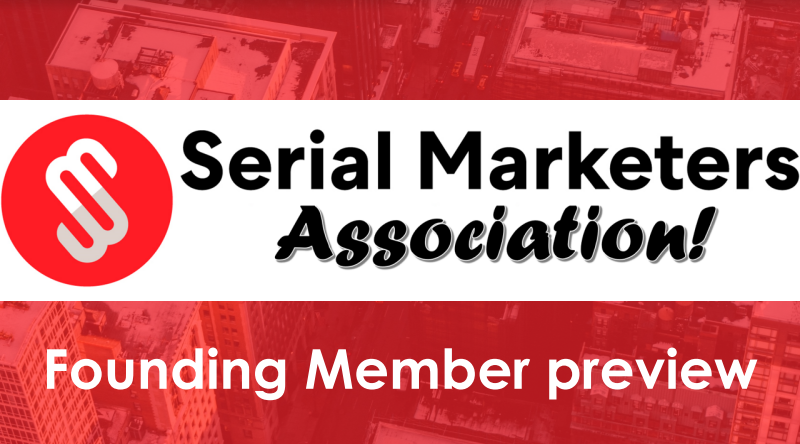 This guy's a killer. Facebook is not. via Wikipedia
This guy's a killer. Facebook is not. via Wikipedia
From today&39;s MediaPost Social Media Insider
Killing the Killer Conspiracies
Cue the movie trailer voice: You
thought it was just a social network. Little did you know it would go
on a murderous rampage, killing everything in sight. You can run, but
you can&39;t hide because Facebook&39;s coming after your friends — and then
it&39;s coming after you.
That&39;s the kind of image that comes
from a number of news headlines over the past week. MediaPost had its
share of morbid entries. On Aug. 12, its Around the Net in Online
Marketing newsletter led with the headline, borrowing TechCrunch&39;s
phrasing, "Google &39;Knol&39; No Wiki Killer." TechCrunch reads like a
first-person shooter game, with other references last week to Microsoft
Zune as an iPod Killer, Apple developing a FriendFeed killer, and two references to Facebook "Lite" as a Twitter killer.
When Mashable covered "Lite," it mentioned a "direct assault on
Twitter." That&39;s a little less gory, ratcheting down the mayhem from
"Summer of Sam" to "Law & Order."
My colleague Cathy Taylor continued coverage of the bloodshed, referring to Twitter getting "thrown under a bus"
in her most recent piece. It sounded like the movie "Speed," where
Keanu Reeves wound up under a bus, though that was more of his own
volition. She reviewed some of the carnage in detail, though I&39;ll give
my own highlights here:
- Facebook acquired FriendFeed. Body count: Twitter (and arguably FriendFeed).
- Facebook allowed anyone to search all public posts. Body count: Twitter, Google, and Bing (and maybe FriendFeed).
-
Google demoed its new search upgrade, dubbed "Caffeine" that more
rapidly and prominently indexes social media content. Body count:
Facebook, Twitter, Bing, and some real-time search engines like
OneRiot.
- Facebook "Lite" launched for people with
slow connections, but its simplicity seemed to resemble microblogging.
Body count: Twitter and MySpace, even though MySpace launched its own simplified version in April.
-
Facebook banned sponsored status updates. Body count: anyone that would
attempt to make a business model out of this (yay!).
Why must
something new always kill what exists? Can&39;t the new Facebook search be
an asset for the social network without heralding the death of Twitter?
A trip to the grocery store is a helpful reminder that new products
don&39;t inherentlykill off the old ones. Dreyer&39;s wasn&39;t killed by
Haagen-Dazs, which wasn&39;t killed by Ben & Jerry&39;s, which wasn&39;t
killed by Weight Watchers. I can&39;t find a SINGLE result in Google that
matches the exact expression "Haagen-Dazs killer." But "Facebook
killer" has 372,000 (and another 2,000 in Google&39;s "Caffeine").
Much
of the problem comes from the linear thinking of technology pundits and
journalists. Here&39;s how it works: if Google debuts "Caffeine" at noon
and Facebook widely rolls out its new search functionality at 3 p.m.,
then Facebook&39;s move is seen as a response to that. If it happened in
the reverse order, Google would be seen as responding to Facebook. And
if over the course of those three hours Twitter was suffering outages,
both would be seen as a way to cripple Twitter right in its moment of
weakness.
Really, Facebook didn&39;t spend $50 million on
FriendFeed the way someone spends $50 on pants. And someone at Google
didn&39;t just say they had to overhaul their search engine, the biggest
and most consistent revenue source in the entire Internet economy, and
then launch a new trial version that day. Silicon Valley would not be
such a hotbed of innovation if everything that happened was in response
to what&39;s posted on TechCrunch.
The "killer" cliché has
been tortured so much that it deserves to be put out to pasture. Yes,
it&39;s another act of violence, but it&39;s a killing to end all killers to
come. Rest in peace.




![Reblog this post [with Zemanta]](http://img.zemanta.com/reblog_e.png?x-id=4dc2a2c7-6840-4552-9658-355e2239ab44)



People reacted to this story.
Show comments Hide commentsThese things must be killers in one regard – time. The average user is bombarded with different websites they must go to go, Google, Yahoo, MySpace, Facebook, LinkedIn, Twitter, FriendFeed, Flickr, Last.FM, YouTube, the list goes on and on. There’s simply too many sites out there to be part of them all. As one site (or feature) rises in importance, something has to give, unless we expect users to carve out more time to be “wired”.